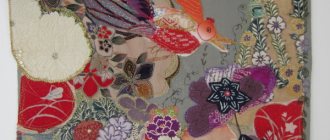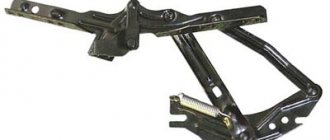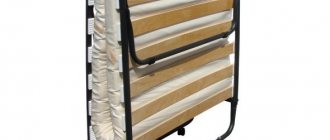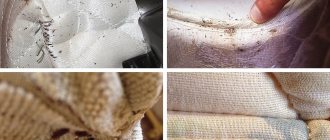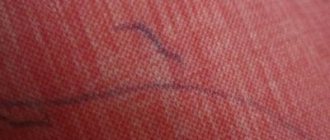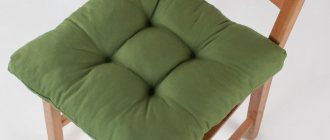How to make a patch for a sofa
For simple repairs, you don’t have to go to a workshop or rush to a furniture store.
Use quality leather for patches.
“But how can you fix a hole in a leather sofa yourself?” - you ask. It's really a little more complicated, but it can be done with minimal effort.
Any sofa becomes unusable over time.
We remember our sewing lessons at school, arm ourselves with scissors, a needle, and thread and get to work. The main thing in this matter is to correctly calculate the size. The main load falls on the allowances, so they must be larger than the damaged area.
Patches can be placed randomly or strictly symmetrically.
What materials can it be made from?
“Liquid skin” is very easily absorbed into the material.
We select materials for sofa repair according to convenience:
- thermal fabric;
- regular fabric;
- leather;
- "liquid skin".
The fabric for the upholstery can be any, but it is better to use a beautiful material.
The quickest and easiest way to make a patch is from thermal fabric. It can be the same color as the upholstery, but in case of multiple damages, contrasting options are acceptable. In this case, we arrange the stripes randomly.
A leather sofa requires special attention to restoration.
It happens that thermal fabric cannot be found, then we buy fabric for upholstery in the store. Choose one that matches the texture and color.
Suede fabric for furniture is an artificial material that has a velvety pile on the front side.
For leather furniture, we choose leather of a similar tone or special “liquid leather”.
Patch design or color
Classic style sofas should be repaired as discreetly as possible. The patch should not attract undue attention.
Choose the fabric for your sofa upholstery depending on your needs.
In modern models, and even more so if the general style of the room allows, you can “become mischievous.” Let's release our imagination and create. Patches can be:
- curly;
- colored;
- with characters and others.
If the damage to the sofa is serious, you will have to make efforts to restore it.
Creativity will help not only refresh the sofa, but also make it more relevant if the appearance of the “four-legged friend” is slightly outdated.
An old sofa can be completely remade.
Process of creation
First you need to carefully examine the sofa. It is more convenient to repair all the abrasions and holes at once. Having assessed the scale of the work ahead, we proceed to the preparatory stage.
The hole patch can be of any shape.
Making a patch yourself is quite simple. We take the selected fabric and measure the flap, cut out the desired shape.
Remember! It should be several centimeters larger than the damaged area in order to withstand the loads during further use.
Almost every happy owner of a leather sofa has faced the need for periodic restoration.
This is interesting: Pattern How to sew up a hole so that the seam is not visible or with a hidden seam - step-by-step instructions
Furniture upholstery restoration: what to do if the fabric is torn
If a hole appears in the upholstery of your favorite sofa or chair, it is unpleasant, but fixable. To eliminate the damage, it is not necessary to seek help from specialists, change the upholstery or send the furniture to the dacha. Try doing the repair yourself. We, together with experts from the online store of furniture fabrics “Ekokozha”, will tell you how to repair a hole yourself, at home.
Hole on hand knitwear
A suitable repair method for knitted items is darning. How discreetly you can hide the loose loops depends on the size of the damage. Thus, a short hook with a torn or pulled out thread can easily be patched with a knitted seam, simply by gathering the loops together with a suitable thread.
If the thread breaks and the fabric unravels, the best option is to restore the torn thread in the top row (by tying the ends) or replace it with a new one, then arm yourself with knitting needles or a crochet hook and pick up the thread, re-knitting the section. Secure with a “crawfish step” or a simple overlock stitch.
How to remove a large tear if all or several threads are torn:
- Use a needle-forward stitch around the tear. This way the fabric will not stretch during darning, and the thread can be pulled out afterwards.
- Then, between the outer loops of each row of holes, stretch thin transverse threads as a base.
- Perform the darning itself by wrapping loops around each warp thread from the top to the very bottom of the break. Next row, “braid” the hole with the same girths, but from the bottom up.
Not all remedies are good
If in the case of a broken seam it is still possible to somehow eliminate the damage yourself, then more radical damage requires professional restoration. How to sew up a leather sofa if the leather is torn, burned, cut, stretched and torn?
There are several options.
- If there is a small piece of leather from the same sofa, slightly larger than the cut, then it must be carefully pushed under the upholstery. Next, the bottom skin is coated with special glue and pulled together by hand. It is advisable to hold the screed with your hands for as long as possible.
- A round hole is already a job for thin skin. You should purchase a set, mix the colors until you get the desired color scheme and carefully fill the hole with the composition.
These methods have a lot of nuances and give more satisfactory than good results. Indeed, in the first case, the junction of the break will be quite noticeable, and in the second, it is necessary to perfectly select the color of the color, which is practically impossible, since in the liquid and hardened state the repair material has different degrees of brightness.
How to hide a hole under a zipper
If the hole is located in a visible place, then it is better to disguise it. The ideal option in many cases is zipper. Algorithm of actions:
- Place a zipper over the hole. Note the principle of placement of a decorative element.
- Apply textile glue to the reverse side of the zipper.
- Glue the workpiece to the fabric base.
- Remove excess glue with a damp cloth.
- Iron the area through the gauze.
Thus, it is possible to close the defect on any type of fabric.
Zipper to hide holes in clothes
If there is a hole in your clothing, it can be fixed. There are many options for restoring an attractive appearance to things. It is important to choose the right technique according to the type of fabric. A variety of additional materials, as well as tools, can be used.
Hole in nylon tights
Nylon is a light and fragile material that breaks at almost any snag. If you don’t have the time and money to buy a new pair, you can get used to it and carefully sew up the tights both on your fingers and in a visible place:
- Prepare a thin needle and thread that is as close in color to the product as possible. Silk threads or thread pulled from unnecessary tights are also suitable.
- Gently pinch the opposite edges at the base of the hole.
- Sew tights, sequentially picking up loops from different sides. Try not to miss a single one to prevent the material from spreading further.
- If possible, go over the seam with a clear varnish.
Advice: Don’t rush to throw away tights with a long crease. Use them to pull out thin threads and make the most invisible seams.
How to get rid of a seam on a sofa upholstery
For example, an outdated model that went out of fashion many years ago, or a completely leaky frame that threatens to fall apart.
Old wood shrinks and creaks, chipboard begins to release toxic substances over time, and dust mites appear in the padding and fabric. But even in this case, you can completely repair it.
You will need tools and free time. First, carefully inspect the sofa to find out what exactly needs replacing. Take a flathead screwdriver, use it to remove the staples that secure the upholstery, and remove the fabric.
A screwdriver and pliers can help remove staples that are too tight. Check the quality of the substrate. It will need to be removed, even if it is well preserved, otherwise you will not be able to properly inspect the frame.
To remove old fasteners, you will need flathead screwdrivers of various sizes, wire cutters, hex wrenches and side cutters.
How to sew a sofa with your own hands
Next, you need to make a basting using a thread and a needle, and go over the resulting patch with an iron.
They can be either fabric or made of other materials, such as metal, wood or artificial stone.
“How to sew a sofa along the seams?” - you ask.
This problem is very easy to solve.
To fix everything, you need to choose a piece of fabric that matches the color of the sofa upholstery.
Use knitting needles to straighten the fabric from the inside, carefully threading them through the slit. Then take a needle and thread and carefully sew first one side, then the other.
How and where to repair a sofa?
It is the Novgorod region that makes such sofas, it is not clear what kind of covering it is.
I wrote to the factory, they ignored me. Like This is not your skin.
I like it when I bought a super leather sofa for the living room, a big one, they gave me a whole lecture that you need to take care of your skin)) I really don’t do anything, but I see what is already needed. There, her pores get clogged too)))) or something like that) Like Kapets! on my sofa it says “seamstress Ivanova, shelf life - 5 years” :)))) that’s about how long it is for him)
How to repair leather furniture that has burst at the seams?
Considering that leather is sewn with strong threads (nylon, lavsan), I believe that it was not the seam that burst on the sofa cushion, but the leather itself.
What can you do on your own in this case?
- Application. Buy a piece of furniture leather (it is sold by the meter), cut it to size and desired shape, glue it with elastic polyurethane adhesive of the “Uran” type (sold in small tubes in hardware stores). As a last resort, you can use the regular “Moment”. Since sofa cushions are subject to heavy loads, you can sew an appliqué along the edge for strength. The seam will have to be done manually, having previously marked the distance between the punctures for the needle.
- You can also make an internal patch. You will need a strip of leather or soft leatherette on a fabric base along the length of the seam and about 5 cm wide, the same elastic glue, leather threads, a sharp needle and patience. Using a flat popsicle stick, apply a thin layer of glue to the leather on the inside of the broken seam and on the front side of the patch (strip of leather). Wait until the glue dries and a film forms. Then the strip of leather, face up, will need to be carefully pushed inside the pillow at the site of the tear. This way the two sides with glue will be nose to nose. They will need to be pressed tightly and held for a while so that they do not separate. And then the jewelry work will begin. At a distance of approximately 3 millimeters from each other, mark the puncture sites for the needle. Do not take it close to the edge, step back from the edge by 3 - 3.5 millimeters. First make punctures along the marks (you can use the tip of a thin awl, you can use a darning needle), and then carefully sew them by hand. The work is painstaking.
advocatus54.ru
My thermos kettle broke under warranty.
Info Pravoved.RU 516 lawyers are now on the site
- Consumer rights Protection
- Categories
We bought upholstered furniture - a sofa and two armchairs. After some time, the seams on the sofa began to come apart.
Hole on lace and guipure
Restoring torn guipure or lace is a painstaking task that requires special patience, and in most cases also experience in lace weaving. Repairing a lace product will make it easier to pre-align the edges of the hole to avoid mesh breaks.
If the hole is not noticeable, you should try to find a matching guipure pattern in stores and hem it with a thin single thread from the bottom.
You can try to restore the lace mesh pattern so that the seam from the patch is not visible. A rougher finish will be obtained by crocheting the mesh. To do this, a strong thread will need to be tied into small bundles. The most accurate restoration of the pattern is achieved when weaving lace using bobbins - special spools onto which yarn is thrown.
This is interesting: Pattern How to sew beautiful tulle for windows yourself
Creative solution - mosaic
Mosaics can be used not only for walls, but also for furniture decoration. It has a self-adhesive base, so it is very convenient even for beginners. Before updating the upholstery, it is secured with a construction stapler so that the base is strong. After this, worn-out parts of the furniture are sealed with a plain mosaic or a picture with any ornament.
:
Sooner or later, there is a need for knowledge on how to mend a hole in a fabric without being noticed. There are many different techniques that are applicable to fabrics of a certain type, texture and texture.
Types of "soft part"
Let's talk in general terms about what the seat and back of the sofa can be made of. There are options:
- Without springs: High-density foam rubber (polyurethane foam, also called PU foam) (also called furniture rubber).
- Foamed latex. In terms of quality and convenience, it is better than foam rubber, but also much more expensive.
- With springs: with classic springs connected in one block;
These are the most common types of sofa seats. In more expensive models, the spring block can be supplemented with a layer of polyurethane foam or latex, which makes the seat more elastic and comfortable at the same time. When reupholstering, they then look at the condition of both parts, replace or leave them - depending on desire and capabilities.
But that's not all the layers. In addition to springs, polyurethane foam/latex, padding polyester or thermal felt (or regular felt) are also laid. This is if the sofa is more or less modern and not too expensive. Older exhibits may contain matting or burlap, batting (or something very similar), horsehair, dried seaweed and other now almost exotic materials for sofa stuffing. When repairing a sofa, they will need to be replaced with the same ones (if you want to look) or similar in thickness and properties. So, to understand how a sofa should be reupholstered, first understand what’s inside it.
What types of springs are there?
The spring block is one of the main “components” of the sofa, therefore, when it fails, there is an urgent need to replace it. In order to understand how to do this, it is necessary to understand in more detail the types of springs.
Table 2. Types of springs used in the manufacture of upholstered furniture
| View, illustration | Description |
| This is the simplest version of the spring design, but at the same time it has good strength. This type of spring can be called budget, and its main disadvantage is that with frequent use the seat quickly sag. | |
| This is also a budget version of springs, which is also comfortable. Of the minuses, it is worth noting that over time the sofa begins to creak unpleasantly, therefore, even if one spring has become unusable, the block is often replaced. | |
| The most reliable, comfortable and durable type of spring block. If we consider the most expensive option, then in the event of a breakdown it is possible to replace any part of the unit and continue using the sofa. |
I burned the upholstery of a car seat with a cigarette, what should I do?
Smoking in the car is not a good idea, but sometimes it is difficult to resist this harmful habit.
Firstly, smoking in a car is simply dangerous because it is distracting, a person relaxes, acrid cigarette smoke can get into the eyes and at a critical moment a cigarette can lead to disastrous consequences. The second unpleasant moment is the side effects of the well-known addiction - the not very pleasant residual smell of tobacco in the car interior, ashes lying everywhere and, most unpleasantly, burnt places.
A piece of tobacco can fall on the seat upholstery, you can accidentally wave your hand and put out a cigarette on the A-pillar, some especially lucky comrades even burn through the ceiling!
What to do in this case? After all, a burnt seat is not at all aesthetically pleasing. For many people, the interior of a car is a kind of calling card. In addition to the appearance of the car, the second thing that almost any person pays attention to is the well-groomed interior of the car.
The burnt hole must be repaired. There are three ways. The first - high-quality, but expensive - will turn to specialized services offering services for restoring the original appearance of the car.
The second is less expensive, but much more complicated, to purchase an upholstery repair kit.
This path is different in that with an 80% probability it will send you to a car service center with professionals. Without certain skills, making high-quality repairs on your own with help will not be easy.
But fortunately there is a third option. It only requires accuracy, a minimum set of tools that you can find at home and a minimum of time. However, the result will pleasantly surprise you!
Required tool:
Restoring burnt seat upholstery
Saving a sofa with oil
Wet the sofa with oil and then polish it well
If the scratching post was not purchased on time, and the pet managed to get to the leather sofa, sharpening its claws on it and leaving scratches, read about how to save the furniture. For restoration work you need to stock up on the following supplies.
| Oil | Tampons | With a rag |
| For wetting | For wiping | For polishing |
- You can wipe a very small damaged area of leather on the surface of the furniture.
- Check carefully for any changes to the upholstery. If no changes are found, wipe the cat's scratches and the areas surrounding them.
- Using a rotating motion, rub the oil into the sofa. You will need to wait half an hour and see what you get.
If the cat scratched the sofa shallowly, the traces of the cat’s crime will disappear after the first manipulation with the oil. But if the traces lie deeper than expected, the steps described above will have to be repeated three to four times.
Contact the professionals!
If you have doubts about your own competence or funds, it is better not to risk such an expensive thing as a leather sofa. And the specialists of the Fenice-TM company can deal with holes, abrasions and other leather defects without risk. Unique Italian technology, appropriate equipment and materials allow you to obtain ideal results at minimal cost.
The Fenice-TM company offers:
- crack putty,
- polishing the leather.
And if the sofa, according to experts, is not subject to cosmetic restoration, you can save it with a radical measure - changing the upholstery. The professionals of our company will help you create a new leather outfit for a sofa, armchairs and any other interior items. Contact us!
There is upholstered furniture in every home. Such interior items are expensive, so it is important to pay a lot of attention to their care, because they are not changed every season. The sofa is designed to serve its owners faithfully for many years. But there are situations in which it is difficult to blame anyone, because anyone can make a mistake and accidentally ruin the upholstery with a drink, food that will leave a greasy stain on the furniture, or a cigarette that will completely burn through it.
We offer you several methods designed to return the sofa to its original appearance and cheer up the mistress of the house, because it is usually the fair half who is upset about this.
We sew up the sofa ourselves
There is a strict sequence of actions, following which a sufficiently dexterous person can join parts of the sofa upholstery that have come apart at the seams. This is what it looks like.
- Select threads, but not to match the color of the upholstery, but exactly to the color of the threads of the seams. It is desirable that the thickness and texture match. This is quite simple to do by cutting off a small piece where the seam has come apart. You should take the thread to a sewing and craft store. There, experienced consultants will help with the selection.
- In the same store you can purchase a set of sewing needles. The main condition is that the diameter of the working needle does not exceed the diameter of the holes from the factory machine. This way the home seam will be almost invisible.
- Google the “blind stitch” technique. There are master classes on the Internet in both video and photo formats. This will significantly simplify the work process.
- Ask someone from your home to become your assistant. It is necessary for a person to carefully pull together the edges of the separated seam and keep them connected while the restoration work is underway.
- When stitching, use only factory-made needle holes.
- Having reached the preserved original seam, make a couple more stitches along it, then the joint will not be a risk point for a new hole to appear.
- Gently tighten the threads, check that there are no wrinkles anywhere.
And a secret trick: find hand moisturizer in the house. To test, lubricate some inconspicuous place on the sofa with it. Wait for absorption. If there is no greasy stain in this place, feel free to coat the restoration area. This will make the skin feel softer and more natural.
Option #1 if the hole is small.
Step 1
In an inconspicuous place, for example, at the bottom of the seat, take a razor and shave off the required amount of upholstery fibers.
Step 2
Collect the fibers in a small container. The fibers of the upholstery material will look like simple fluff.
Step 3
Fill the cigarette burn hole halfway with glue.
Step 4
Using tweezers, drape the extracted material onto the glue. Don't compact it!
Step 5
Reapply a thin layer of adhesive over the fibers. Be careful! Avoid contact with undamaged areas.
Step 6
Using tweezers, add more fibers until the hole is completely filled with them.
Decorative cape
You can hide damaged areas of upholstery or protect new furniture from damage by animals using a beautiful blanket or a special decorative cape. The choice is multifaceted: contrasting, colored, plain or patterned colors. The cape not only performs a practical function, but is also able to reimagine the entire interior of the room in a new way, adding a special twist to it.
In the store you can choose a cover that covers the entire surface of the furniture. If you choose several options, you can change them according to your mood or every season so that the situation does not get boring. These covers are very easy to care for: they can be removed and washed.
Lace or knitted patches
With such a patch, no one will guess that it was done intentionally to hide the damaged upholstery. It looks gentle, neat and original. You can knit decorative elements yourself or buy them. Before sewing them on, you need to process the material of the sofa: remove all protruding threads and “pellets” so that a smooth surface remains. After preparation, carefully sew the openwork parts to the place where the upholstery is torn.
Option No. If the damage is more serious.
Step 1
Take a piece of any thick fabric. We will use it as a substrate. Cut out a rectangular patch. Round the edges. This will make it easier to push it into the hole and straighten it under the upholstery.
Step 2
Take fabric glue and a needle. Apply glue to the needle and process the patch as shown in the video (43 seconds). Carefully apply glue so that the scarf does not move from its place.
Step 3
Apply glue to the resulting backing. You can also use an external patch, as shown in the video. This doesn't change the essence.
Step 4
The most crucial moment. Gluing a piece of fabric to the seat upholstery. Where can I get material for the patch? Usually it can be cut from the bottom of the seat.
Classic sofa pie with a spring block and possible problems
To understand how to repair a sofa at home, you need to know what layers of materials are needed and in what order. For example, in a sofa seat with a spring block the sequence will be like this (from bottom to top):
- Frame made of plywood or wooden blocks
. A plywood frame is more reliable, but it takes longer and is more difficult to make. Therefore, pine bars are usually used. They are connected according to the tenon-groove principle, gluing the joint with wood glue. If desired, the connections can be strengthened with dowels or corners (aluminum). - Base for spring block
. There may be options: lamellas (straps of elastic material), fiberboard, plywood. The most budget option is fiberboard, the most expensive is lamellas. The lamellas are attached to special stops (lamella holders). When using plastic stops, there is a risk of them breaking. At the same time, low-quality lamellas can bend (in normal condition they are curved slightly upward) or break - to reduce cost they are often placed at large intervals. All this leads to the fact that the sofa seat is pressed through. Instead of wooden slats, there may also be snake springs. They also have sufficient elasticity, but cost less. The problems with them are the same. - The spring block itself
. The block can be with independent or dependent springs. The first one is cheaper, the second one supports the body well. Such mattresses are also called orthopedic. - Felt or thick fabric
(teak or other similar dense fabric will do). This layer is needed so that the springs do not push through the foam rubber located above.If the fabric is thin, it will tear, then the foam will begin to crumble. But this is not the saddest thing - the lamellas were bent in the opposite direction. In normal condition they should be curved upwards
- Polyurethane foam
(PPU, foam rubber - all names of the same material). Special dense foam rubber is used. If you choose, in addition to density, look at such an indicator as the durability coefficient - the higher the number, the better (and more expensive). This indicator reflects how long the foam will take to restore its original shape after removing the load. Its thickness is taken according to the original, factory cake. You can make it thicker without restrictions only on upholstered furniture that does not fold out (banquette, sofa, armchair). - Sintepon
. This is necessary so that the fabric does not “erase” the polyurethane foam. It is usually glued to a layer of foam rubber so that it does not bunch up during use. The glue is taken in a can. - Upholstery fabric
. The best are tapestry, chenille. They don't fray and it's easy to sew with them. Flock and jacquard are good fabrics, but some of them “creep” at the seams. Therefore, when you sew, the seams need to be strengthened. By the way, it is better to sew upholstery for a sofa using special Tytan brand threads. Regular ones, even thick ones, will quickly tear.
These are all the layers and their features. You can add something (for example, a double layer of padding polyester), but removing it is highly undesirable.
Sofa repair at home
Below we will look at the main problems that require repair work to restore the sofa.
Frame and transformation mechanism: step-by-step instructions
First of all, you need to check the condition of the sofa frame. To do this you will need to disassemble the structure.
Step one: you need to disassemble the sofa, remove its upholstery and filling. After that, you should carefully remove dirt and dust that accumulate inside the structure over time. In some designs, the transformation mechanism is attached to the seat and back, and in this case there is no need to remove the upholstery.
Step two: now you need to inspect the condition of the frame beams. They are often deformed due to various impacts. If they are cracked or broken, it will be necessary to prepare the bars exactly to the size of the structure and install them. A cracked beam can be fixed using a metal angle and screws. As you can see in the photo, a fairly large number of fasteners will be required for the grip to be reliable.
We connect the parts of the beam with a corner
Step three: in some cases it becomes necessary to replace the plywood part of the sofa. The damage occurs because the springs push through the thin plywood.
Any cracked pieces of plywood will need to be removed.
Now we need to cut out a piece of plywood exactly to the size of the damaged part (in this case we use a diameter of 4 millimeters)
We prepare small bars and make holes in them for self-tapping screws
Now, using self-tapping screws and wooden blocks, you will need to secure the plywood part
Repair of the transformation mechanism will differ depending on its type:
Very often, budget versions of sofas are equipped with a roll-out mechanism
There are cases when the fittings of the transformation mechanism have not lost their original appearance, but the spring requires replacement. It usually becomes deformed when there is too much load on the sofa. If there are deformed parts in the design of the mechanism, they must be removed and replaced. Let's look at the repair process using a clear example.
Step one: remove the spring from the transformation mechanism.
The spring of the mechanism should be brought
Step two: now we need to disassemble the latch.
The disassembled latch looks like this:
Next, take the bolt and clamp it with a vice.
Now you can assemble the clamp
This is what the mechanism looks like after repair
Spring block repair: step-by-step instructions
During operation, it is the spring unit that often fails. It consists of twisted metal elements connected at the top and bottom. The first sign of a breakdown is a characteristic creak that can be heard when trying to sit on the sofa.
Important point! Restoration of the spring block is carried out by replacing the connecting parts.
Step one: in this case, you will have to remove the upholstery and all the soft part using a special tool called an anti-stapler.
Step two: now you need to determine the type of breakdown and fix it:
You can connect broken springs together using wire or a spring. In this case, a dowel was used as additional reinforcement.
"Naked" spring block
If, during operation, creaking is observed only in a certain place of the structure, then it makes sense to secure the lining between the metal elements. Of course, this is just a temporary measure, so if possible, the block will still have to be replaced.
Video - Spring block repair
Replacing filling and upholstery: step-by-step instructions
Over time, not only the frame elements and springs become unusable, but also the soft part of the sofa, and then it will also need to be replaced. We tell you how to do it correctly.
Step one: we need to evaluate the appearance of the fabric that is placed under and on top of the spring block - this can be either felt or batting. Thanks to the presence of such a lining, the springs will not push through the foam rubber and rest against the plywood parts. When dismantling old structures, craftsmen in most cases see the following picture. The batting layer has become deformed and lost its original appearance, so it will not be possible to leave it. Once you have removed this material, it is recommended to vacuum the structure to remove any remaining dust.
Step two: First, material should be placed under the spring block. It is not necessary to buy a new piece of fabric for such purposes, because you can even take an old, clean blanket.
We lay the fabric under the springs, and then secure the block to the frame
Step three: now we also have to put material on top of the spring block. We will use felt for such purposes. If this is not available, you can use unnecessary carpeting.
It is advisable to roll it in two layers, then cut it exactly according to the design parameters. Now we need to attach this material to the springs using a thick needle and thread (some craftsmen use an awl in such cases). Between stitches you should leave a step of 35 centimeters.
Attaching the material to the spring block
Step four: now we have to lay down the foam. If the old one looks normal, then you can leave it. Replacing foam rubber involves performing the following steps:
We carefully fix the foam rubber on our structure
Step five: now you need to put a padding polyester on top of the foam rubber; if necessary, it can be replaced with another soft material. As an alternative, you can use holofiber - this material is durable and has a long service life. The synthetic winterizer is also secured to the structure using brackets. At the same time, it is recommended to glue it to the foam rubber, because during use it can slip. Now the structure must be left for several hours until the glue has completely dried, and only then can you proceed to another stage.
Step six: we have to secure the upholstery fabric. You can use the old one if it looks normal. However, many craftsmen prefer to make new upholstery to update the sofa.
If you plan to use old upholstery, you will need to wash it.
At this stage we have to choose the material from which the upholstery will be made. To do this, we will look at the features of the most popular types.
Table 3. Types of upholstery
To cut out new upholstery, you need to remove the old covers, rip them apart at the seams, and then iron them, after which new upholstery should be made from them
Now we have to secure the upholstery on the sofa using a stapler. The fabric should be slightly stretched.
In order to preserve the upholstery of the sofa, it is recommended to sew a set of removable covers - they can be removed and washed at any time
How to repair leather furniture at home, expert advice
Leather upholstery for furniture is considered one of the best materials. It combines strength and presentable appearance. But during use, stains and scratches will still appear. It is possible to carry out minor repairs to leather furniture on your own, although much depends on the nature of the damage. If the contamination or defect is not eliminated in time, the furniture will lose the value and richness of the color of the upholstery. With scratches and cracks, the situation is even worse - if repairs are not started in time, the crack can grow to such a size that it will be easier to buy a new sofa.
Sofa damage: the most common problems
Of course, it is always easier to buy a new product than to repair an old one. However, in case of some problems, it is still possible to restore the structure. We will look at the most common types of damage to sofas (they also apply to other upholstered furniture):
Over time, even the most expensive upholstered furniture may require repairs
Of course, after disassembly, it is necessary to carefully assess the damage and calculate the cost of repairing the sofa. They should be no more than 50% of the cost of a new product, because in other cases it will simply not be profitable to restore it.
The final stage is decoration
We fix the outer part of the sofa, decorate it with beautiful legs and decorate it with buttons - we get a great new sofa
Restoring sofas with your own hands is an interesting activity, as is decorating it. Here you can simply lay beautiful pillows, or make a carriage tie.
Do-it-yourself carriage tie for the back of the new Diana
Usually the backs are decorated in this way, leaving the seats solid. The screed elements are simple; you need to prepare buttons or metal rivets. Cross diagonals can be emphasized with tape. In order for the foam rubber to lie flat, you need to cut out small circles from the filler at the replacement stage - places for future buttons. Then cover it with fabric and sew on the selected elements. To tighten the buttons, you can use a stapler or strong threads, tightening them on the other side.
Do-it-yourself upholstered furniture repair
If the design has wooden elements, you can glue a shaped piece of wood in color to the front part of the armrests. Then all the furniture parts are put back together. It is important to check all fastenings so that nothing comes loose during operation. That's it, the restoration of the old sofa is complete!
Restoration of an old sofa - photos before and after reupholstery
Antique soft sofa with wooden elements after restoration
Let's sum it up
With some effort, you can make repairs yourself and update the upholstery of the sofa, so you don’t have to buy new upholstered furniture. The most important thing is to replace all parts of the structure that have become unusable, following the instructions, and after high-quality repairs, the sofa will last for many years.
Lately, you can often see homemade interior items made from pallets when visiting someone. These are structures used to transport goods. It turns out that it is not so difficult to make a sofa from pallets (pallets) with your own hands, and in terms of its quality it can be even better than what you can buy in a store.
Video – Restoration of a sofa with a change in design
Source
Required materials and tools
To choose the right materials, you should carefully evaluate the condition of the furniture. This is necessary to understand the nature of the problem and determine how to fix it. To repair leather furniture, you may need professional tools that are not advisable to buy for one-time home use.
If we are talking about simple contamination, then it will be enough to prepare a cloth and alcohol. Repairing cracks is a little more complicated. Before starting work, you will need to acquire construction tools - they will be used to dismantle furniture and remove old upholstery.
This is a set of screwdrivers, wrenches, screwdriver, pliers, staple removal tool. Changing the material involves using a staple gun. This is a basic set of tools.
There are repair options using paint, liquid leather and other improvised means. Therefore, it is worth purchasing them in advance. Don't forget about the sofa's filling - the material may also need to be fully or partially restored. Foam rubber is often used as a filler. You definitely need to get some thread and a needle. A sewing machine will do the job faster. If you plan to partially or completely replace the upholstery, then a large amount of new material will be required.
Upholstery restoration
Before you begin repairs, you need to assess the type of damage, the extent and equip yourself with the necessary repair kit. Remember that the method of restoring upholstery directly depends on the type of fabric.
Repair of natural and artificial leather
A considerable number of special products have been developed to eliminate damage to leather upholstery. One of the most popular of them is considered to be “liquid skin”. This is a special solution that has the consistency of a paste. Choose the right color and follow a few simple steps:
The paste completely fills the hole and melts at high temperature. If the color of the “liquid leather” is chosen perfectly, there will be no trace of a hole in the upholstery - the surface will look solid.
In order to repair damage in the form of a broken seam, you do not have to be a furniture maker. You will need threads in the color of the old stitch, a needle whose diameter does not exceed the existing holes from the factory machine, and an assistant. One person should use their hands to tighten the loose edges as much as possible, and the second person should sew the stitching using factory punctures. Having reached undamaged stitches, you need, for greater reliability, to walk along them two or three steps.
How to fix fabric upholstery
If a hole appears on a fabric surface, a patch is an excellent way to fix it. Its color can be chosen to match the sofa or made contrasting, combining repairs with updating the boring type of furniture. The main thing is that the new design does not contradict the overall design style of the house. Before sewing on the patches, you need to process the fabric - remove spools and protruding threads. Then cut out a piece of material of the required size, secure with basting, smooth with an iron and carefully sew on it. For these purposes, it is better to purchase a special rounded furniture needle.
Owners of furniture with both leather and fabric upholstery are faced with the question of how to fix a split seam. Eliminating such a defect is simple; to do this you need:
If there are many holes and their sizes are large enough, it is not advisable to sew them up or mask them. In this case, it is better to change the upholstery completely. By choosing fabric in the Eco-leather online store https://ecokoja.ru/tkani-products/tkan-dlya-obivki-mebeli/, you can change the decor beyond recognition, saving on purchasing a new one.
Furniture is an expensive luxury and is usually purchased for more than one year. However, no matter how carefully you treat it, holes can appear suddenly. No need to worry about damaged upholstery. With just a little effort, you can easily correct the situation.
*This article and images were prepared and provided for publication by the organization. The independent news agency Nizhny Novgorod is not responsible for the content of the article, financial, legal and other consequences of its publication.
Copyright © 1999—2020 NIA Nizhny Novgorod. When reprinting, a hyperlink to NIA Nizhny Novgorod is required. This resource may contain materials 18+
Source
Restoration process: step-by-step instructions
We check the frame and base of the sofa, replace it if it breaks
Before you restore the sofa with your own hands, you need to check the condition of the main frame. If there are cracked or sagging bars, it is better to replace them. Solid wood rarely requires repairs, but chipboard often breaks. It is not worth repairing; here you need to completely replace the broken part.
We drag the lower base of the sofa, using the old upholstery as a template
The repair of the back, seat and armrests is slightly different, but in general, the restoration scheme for various parts is approximately the same.
We replace the upholstery on the inside of the armrests, replace the filling and sew a new cover
First of all, you need to carry out dismantling work:
- remove the side armrests (usually the bolts on them are made from the inside; here you may need a hexagonal spanner or pliers);
- remove the seats and backrests from the fasteners to the lower frame;
- remove the old upholstery, remove the staples too;
- Carefully dismantle the old filler and check for suitability for reuse;
- remove the springs, check their condition, if necessary, clean, lubricate, replace in whole or in part;
- Check the condition of the chipboard and replace the sheets if necessary.
We replace the outer part of the armrests and connect both parts together
It is better to put all the small parts from disassembly in one container so as not to lose them.
We fix the upholstery at the base, use a hammer and stapler if necessary
At the second stage, we replace the old elements. To fasten parts together, it is best to use both glue and a stapler. But if necessary, you can make do with handy means. For example, instead of a stapler, use small nails:
- lay thick fabric on both sides of the spring block, bend the edges inward on each side and stitch with nylon thread;
- lay the spring frame on a wooden base, secure the springs through the fabric with a stapler. If you don’t have a tool, you can make arched staples from steel wire, or from thin nails, driving the “head” to the side;
- lay new, or suitable old, filler;
- tighten the entire structure with fastening fabric, like upholstery, and secure it;
- put on a new cover, secure with glue and a stapler.
Now it’s the turn of the back of our sofa - we do the work according to the same principle
Dismantling an old sofa
Use a nail puller or screwdriver to remove the upholstery from the sofa.
Before starting the main work, you need to carefully inspect the condition of the furniture. Use a screwdriver to remove the upholstery from the furniture. Then it is recommended to pry the staples. If they are firmly fixed, then you need to use a flat-head screwdriver and pliers.
To repair an old sofa with your own hands, you need to inspect all the wooden elements. For a detailed examination of the frame, you need to remove the backing. All joints and fastenings must be checked for strength. It is better to replace screws and bolts with new ones. Broken and old structures must be replaced with new components made from wooden beams, fiberboard sheets or plywood sheets. In case of minor damage, the product can be corrected using construction tape and wood glue. Particular attention should be paid to fastening elements. Replacing them will allow you to extend the life of the sofa for a long time.
To repair a sofa, you need to separate the seat from the back:
- First, unscrew the bolts holding the armrests to the sides.
- Then remove the side surfaces and detach the lower part of the furniture.
- Unfold the sofa and turn it over with the outside facing the floor.
- Remove the backrest and remove the metal mechanisms holding it in place.
- Dismantle the seat and remove used fasteners: staples and nails.
- Remove the old drapery and take out everything that is filled with the sofa.
- If the springs are not damaged, then leave them, and if there are damaged ones, then remove the block.
There is no need to rush to throw away the old upholstery; it can be useful as a pattern for a pattern when sewing new covers.
Repair and restoration methods
For leather furniture, stains are not as critical as physical defects such as cuts or scratches. There are several main methods for restoring such furniture, aimed at both full or partial restoration of the material and hiding defects. The upholstery will not look the same as before, but the scratches will be invisible. The following repair methods can be noted:
- The easiest way is to repair leather furniture using a product called “Liquid Leather” or its equivalent;
- The scratch is painted over with varnish or paint matched to the color of the upholstery. Here we are talking only about camouflage;
- An applique is applied to the damaged area or a patch is sewn on if this does not affect the appearance of the product;
- The most difficult and time-consuming process is the complete re-upholstery of the material. You should resort to it only when repairs with liquid leather no longer help;
- Replacement of accessories. In some situations, it is not the upholstery itself that needs repair, but decorative elements or fittings.
Liquid skin
If you have to work with major damage, you will need to fill the void with foam rubber or cotton wool. This area is glued from the inside of the upholstery. Using the table supplied with the liquid leather, you should select the most suitable color.
The damaged surface is cleaned, degreased, after which the leather furniture is repaired with your own hands. There are no special rules for applying “Liquid Skin” to the surface. The liquid can be applied either with a brush or with a spatula. There is a trick that allows you to give the area restored using the specified product the texture of the original material - you need to attach a sample from the sofa to the damaged area.
Painting
Painting helps in situations where, after a long period of use, furniture has lost its appearance due to wear and tear. In this case, minor cosmetic repairs should be carried out by painting. The paint itself can be produced both in the form of an aerosol and in the form of a spray, so it will be easy to repair leather furniture. First you need to evaluate how well the paint matches the color of the upholstery, and, if necessary, mix several shades to obtain the desired color.
What is the structure of the sofa made of?
Before you begin the repair, you need to familiarize yourself with the elements that make up the design of the sofa:
The sofa consists of much larger elements than one might expect
If we are talking about a folding sofa, then the design also includes a transformation mechanism. There are several types of such mechanisms, and we will tell you more about the most popular ones in the table.
Table 1. Types of transformation mechanisms
| Type, illustration | Description |
| Such a mechanism assumes the presence of three provisions. It is often installed on modern types of sofas with slats. | |
| Thanks to the installation of such a mechanism, you can achieve a massage effect when sitting or lying down. Meralax can be metal or in the form of wooden planks. | |
| This is not a bulky, but at the same time very convenient to use mechanism. A seat is fixed to the side of the frame, which will then move apart. This is the simplest mechanism of all existing options, but at the same time it is reliable. | |
| This mechanism also suggests the presence of three folding options. Its main part is static, others move and are fixed with locks. The accordion is installed in various modern products; it cannot be found in old furniture. |


